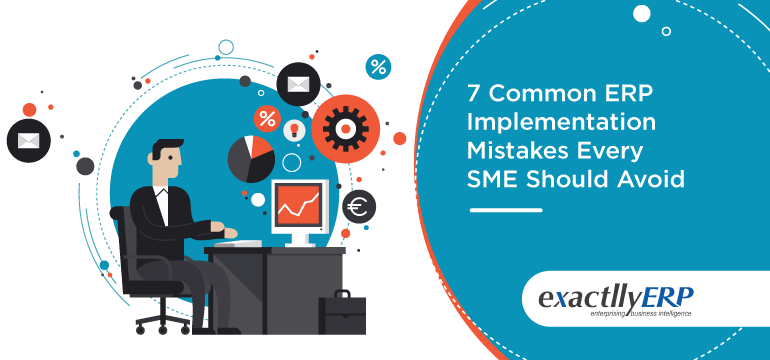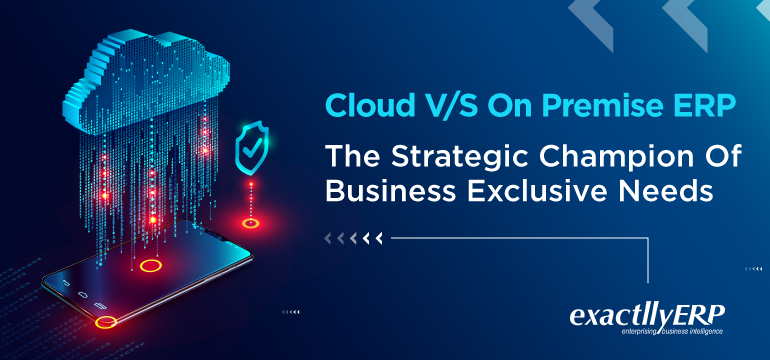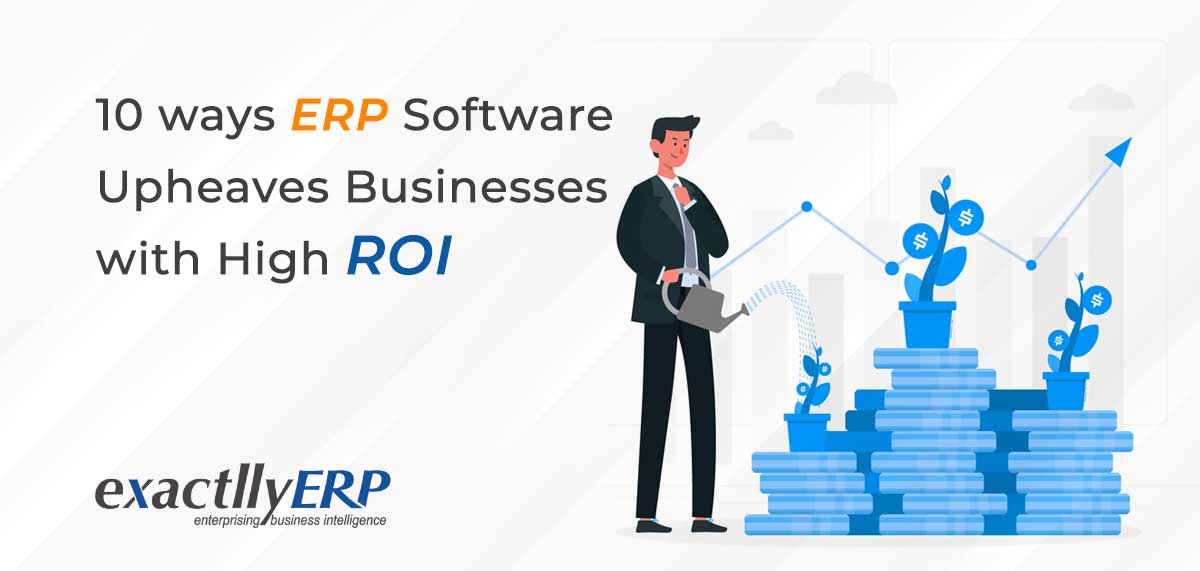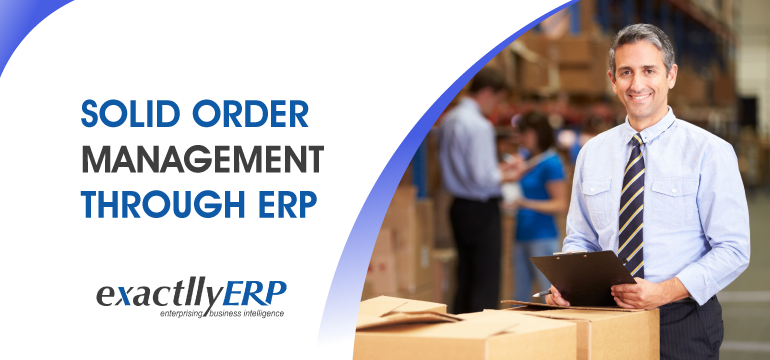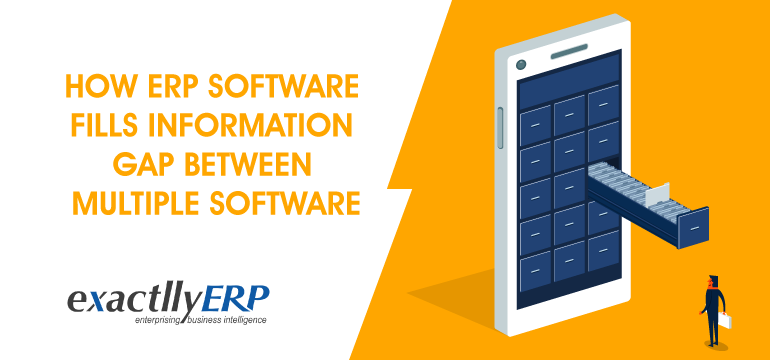Scaling E-Commerce Business with ERP Solutions
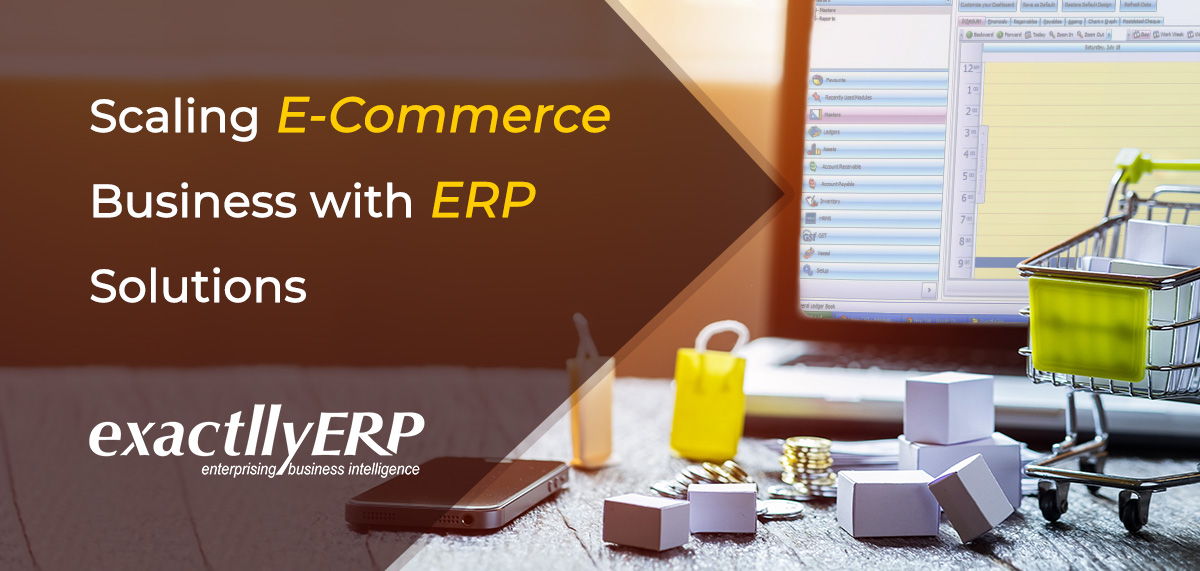
A lot of transformation has now shaped today’s retail industry. For that erp solutions are very much needed in the retail industry. This has enabled small-scale sellers with the prospects of competing with the bigger players in the industry.
Digital sales enhanced by approximately 16.3% in 2017. In 2018, it mounted by 18% which is equivalent to approximately 3 trillion in virtual transactions. 2019 and 2020 to have offered digital merchants with record-breaking numbers. Retail e-commerce online business of every size is currently booming. But with significant increases in sales and traffic, there also comes growing complexities. Entering into ERP is necessary for maintaining production and prosperity. Retailers can compete in the competitive e-commerce business ecosystem by aligning back-end and front-end efforts that will harmonize the business operations into an incorporated whole.
Organizations can run successfully and generate continuous revenue and sales when it leverages a bunch of high-quality and effective integrated applications. Gradual scaling of e-commerce businesses is possible with ERP software or enterprise resource planning. Any business process will come to a halt or slow down if the organization follows conventional techniques. Also, the cost will increase by using these techniques. But contemporary ERP solutions work by performing the opposite. The solutions not just reduce cost but also fasten the process. If you are unsure of this, stay tuned and read along to know the details.
Climb the Ladder of growth with ERP:
When enterprises learn about ERP business collaboration & its benefits for skyrocketing e-commerce businesses, they instantly want to implement it. A quick and efficient implementation is nowadays a breeze with celebrated and eminent ERP vendors like Exactlly. With the right ERP software system and quick support from vendors, e-commerce businesses can step a level higher. How ERP helps businesses are listed below:
-
Accounting and Finance –
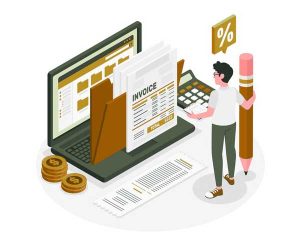
Business finance management is necessary. What comes in, what goes out and how much needs to be disbursed are important calculations. Any mistake in these calculations can hamper businesses and harm their reputation. With ERP solutions, an organization can keep a check on all end-to-end finances. Monitoring and managing the capital becomes hassle-free. Alongside, generating balance sheets, L/P statements and sales reports is possible for bringing clarity to the financial information.
Any e-commerce business with ERP software can get hands-on flexible bookkeeping, unmatched financial consolidation and impeccable reporting. It will help in accomplishing easygoing relations with customers and vendors.
-
Delivery –

After the warehouse stock is ready and marketing is done right, the e-commerce business will then head towards delivery. Ecommerce-business scaling will always demand the people involved to work faster and effectively. But individual invoice generation that a small-scale business usually does is a money-burner and time-consuming. This is when businesses must opt for transport management systems, which come in handy along with accounting software. These processes can be commenced instantly. Accessing everything from a single place is possible starting from documentation, shipment, delivery proof, etc. For all this, using a sound ERP system is paramount.
-
Operations –

The sectors ERP in the construction industry and ERP in the retail industry always think of scaling e-commerce business. But why is it so and what makes it so necessary? The best ERP solutions are the ones that assist customers to check their order status, learn about the availability of inventory and track the shipping details. Due to all of this, the employees find ample time to start working on the core functions of the business. Order backfires, prospects of human errors and re-works are instances that will never take place with the best software solutions.
-
Inventory Management –
Any e-commerce business will suffer and hamper its status if it does not have streamlined inventory management. Stores often encounter the situation of overstocking or under-stocking that does not carry clear visibility into the inventory amidst various other challenges. By this, we can understand the significance of ERP projects. Effective ERP systems can help businesses eliminate these errors. Real-time sales order details reports on the things that will sell and what will not be the information that businesses will know with ERP. Depending on these details, the software system will notify the business regarding the product stocks and alleged time of new requirements of those stocks. Keeping control over the inventory will be possible with this along with reducing cost.
-
Customer Satisfaction –

As we have mentioned all the important pointers above, detail tracking to updated product information; everything functions as a customer-pleaser. A hurdle-free experience is something that the purchaser will always anticipate. ERP systems can do this for e-commerce businesses.
-
Complex Pricing –
A customer when shopping online throws much importance on the price when choosing a product. This is the same for e-commerce businesses too. They need to consider product pricing, sales tax, tier or bulk pricing, delivery and shipping, consumer loyalty rewards, discounts, etc. It is challenging for businesses to prepare the correct price structure for services or goods when it is re-scaling. Semi-integrated online processes or manual processes can make such tasks time-consuming. This is the space where ERP software kicks in. A contemporary cloud ERP works by storing pricing data in one place and integrates it seamlessly with third-party applications. The e-commerce platform can also enhance accuracy and efficiency with these systems.
-
Secure Store –
Using every resource within an e-commerce business is possible in a safe manner because of high-end ERP solutions. These businesses have a lot of sensitive information to store regarding their customers’ personal information, etc. The protection that an ERP provides is beyond excellence. Ecommerce platforms face many cyberattacks these days, so integrating a sound software system today is a must.
What Is A Future-Proof Enterprise Resource Planning Strategy For Ecommerce Business?
Every e-commerce business needs to advance with a future-proof enterprise resource planning strategy. Not only employee training is a breeze with ERP solutions but a strong strategy always reflects the long-standing objectives of a business. These strategies are flexible and are modifiable for supporting the continued eCommerce implementation. It must realize the present needs and incorporate a plan for meeting the requisites via the necessary processes, people and systems. These three elements are the most important and must be shaped in the context of expansion and growth. There also must be a general approach and parameters utilized for advancing following the establishment of the primary opportunities. The strategy will also help with resource allocation for continuing the various e-commerce efforts. This makes employee training extremely important so that the team members can remain completely involved in the various e-commerce activities.
Ecommerce businesses must start by planning integrated approaches that incorporate all the things such as websites and the technical challenges for execution, financial management, feedback and analysis to sales, customer relations, logistics processes, product design, etc. Picking the right ERP software for ecommerce businesses is necessary for offering flexibility and custom capabilities.
Final Say:
Any small or big e-commerce business needs to overlook numerous backend operations that need effective management such as warehouse management, payment processing, accounting, shipping systems, inventory management, etc. It is possible to manage every element perfectly with tools like ERP software. With ERP solutions, every area can function independently of its linked components. E-commerce brands are in danger of making poor business decisions without the integration and close communication of the systems. Inaccurate information is harmful to any brand.
An e-commerce business must get hands-on precise sales information for obtaining correct inventory projections. Stop your eCommerce brand from continuing the vicious cycle by implementing exactllyERP. Help your brand reach its complete potential with these software solutions. See the Free Demo on the website and understand what it can do for your eCommerce business. Contact Us for further discussion.
FAQ:
(1) How does ERP help E-Commerce?ERP helps eCommerce by letting it track leads, enhance the business operations over an online or mobile platform, automate the tasks linked to field service and a lot more. (2) How does ERP boost the eCommerce market in the current situation?Enterprise resource planning with eCommerce has the ability to conduct customer-facing tasks more conveniently and tasks become more reliable through updates and real-time automation. Selling products online these days, calls for utilizing ERP for managing revenue streams efficiently. (3) How can ERP improve a company’s business performance?ERP constructs the most effective method of planning and scheduling resources for productivity optimization. This is how ERP can improve a company’s business performance. (4) What is the difference between E-Business and ERP?E-business stands for electronic commerce while ERP stands for enterprise resource planning. While the latter can bring in automation for retailers, it is not possible the former one. (5) What are the ERP Modules?The shifting needs of a business can easily be met by ERP modular design, so these software solutions are now becoming ubiquitous. Organizations can buy the modules that are relevant to their respective business models and key challenges. (6) What is the main purpose of ERP when it comes to e-commerce sites?The main purpose of ERP is to combine the various processes of a retail business into one full-proof integrated system. Several business management apps can function together with this platform. (7) What are the levels of ERP?The levels of ERP are system specification integration, system user integration, islands of technology integration, organization integration and socio-organizational integration. (8) What is ERP online?ERP online is a platform helping organizations effectively manage all the core business functions and helping retail brands manage the front and back-end of their online stores. (9) What are the future directions in ERP?Vendors are now striving to discover new markets with bigger organizations getting saturated with client serving ERP software systems. Now the software products are more cost-effective and implementation methodology is also improved for quicker development. (10) What are the benefits of the ERP System?Department collaboration, cost savings, flexible systems, integrated information, accurate forecasting and competitive advantage are the ERP system benefits for organizations. (11) How does ERP improve productivity?ERP solutions bridge the information gaps across numerous departments within an organization enabling managers to witness a holistic view of the critical challenges and finances. (12) How does ERP fit with E-Commerce and Supply Chain Management?The contemporary ERP solutions are completely integrated with the various e-commerce supply chain solutions such as manufacturing, shipping, e-procurement, distribution, supplier and buyer-oriented exchanges and marketplaces. (13) Why has ERP considered the backbone of E-Business?ERP along with establishing first-rate business practices but also demands flexibility and empowerment in the decision-making process for organizations (14) What is the ERP Life Cycle?Organization and planning, selecting system and installation, data conversion & loading, procedure development & user training, validation and testing, cutting-over and going live are the elements included in the ERP life cycle. (15) What is ERP Configuration?ERP configuration deals with several system components but not to the business procedure needs. As the system components are configured, it enables them to function within a provided environment’s constraints that incorporate time zones, languages and currencies. |

